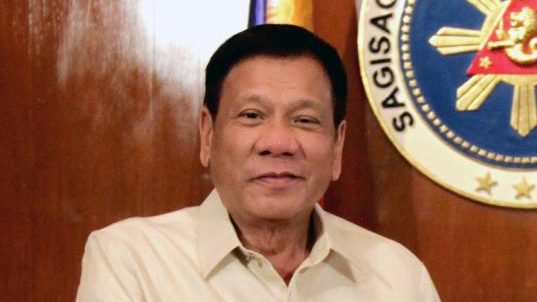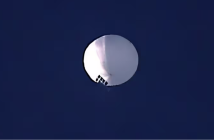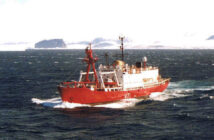For years, China hawks have warned that Beijing is playing a very sophisticated multipronged strategy make good its territorial claims in the region.
Two of China’s levers are well known – an increasingly powerful military to intimidate its neighbors and tremendous economic leverage that it can use we either reward or punishment.
The third, according to analysts, is Beijing’s financial support for politicians across the region who once elected will steer their nations toward a pro-China path. Russia has employed similar tactics, bankrolling alternative movements across Europe to undermine NATO and the EU.
And the new Philippine President Rodrigo Duterte is one of those candidates.
With Filipino’s frustrated with high crime and perennially weak leaders, the swaggering Duterte was the latest authoritarian leader swept into office promising law and order.
After getting elected by promising to declare open season on drug dealers and users, an unprecedented vigilante killing spree has started claiming hundreds if not thousands of lives.
And when Washington predictably expressed legitimate human rights concerns about Duterte’s policies, the new Philippine leader lashed out at President Barack Obama, ordered American special operators to leave the country and started cozying up to China.
That cozying took a dramatic turn last week when Duterte visited Beijing to sign a $24 billion economic deal during which said the Philippines long relationship with America was over and it was time for Philippines to stand with China and Russia. Duterte and Beijing also agreed to negotiate a settlement to disputed South China Sea claims.
For Chinese hawks, it’s a pivotal step that marks the beginning of the end of America’s role in the Pacific as other nations like Thailand and Malaysia to follow suit.
That could happen, depending on how Washington responds. So far, the Obama administration has been measured in its response as senior officials make clear the Philippines remain a treaty ally and recipient of some $5 billion in annual U.S. aide.
For starters, Washington must break out the charm, diplomacy and its checkbook to increase investment in a nation and region hungry for growth.
U.S. officials also must be patient and avoid doing anything that gives Duterte more ammunition to unwind a relationship that is vital to both nations militarily, culturally and economically.
Some 90 percent of Filipinos remain pro-American, especially so in the wake of China’s military bullying over Scarborough Shoal and other disputed patches of the South China Sea. Other Filipino leaders have also tried to warm relations with Beijing, unsuccessfully, but none have had such harsh words for the United States as Duterte.
It’s also important for Washington to understand what makes Duterte tick. His unique ethnic, cultural, political and geographic background makes him an anti-imperialist and America has a history of mistreating its former colony during their long relationship.
Duterte has softened his tone somewhat, but made clear he wants U.S. troops out of the country despite the 2014 agreement allowing use of five bases, saying that America shouldn’t treat his nation like a “dog on a leash.”
Washington must turn up the charm, make clear it stands with the Philippine people and an acknowledgement that America has erred in the past wouldn’t hurt. That would undermine Duterte’s continuing portrayal of Washington as an insensitive and bullying former colonial master.
Third, any pressure on Duterte must come from America’s allies in Manila. Their message, rightly, should be that the nation has more to gain by sticking with United States than shifting allegiances to Beijing.
Meanwhile, Washington must remember that this is a geostrategic game and that the potential loss of the Philippines means that Taiwan and Vietnam become all the more important.
American diplomats must ramp up engagement with Taiwan in particular, a key strategic partner with a pro-U.S. population that’s been left in limbo for decades as American leaders were seduced by the dream of an increasingly capitalist and democratic China. China may be an economic power, but it’s not democratic and actively working to push the United States from the region without firing a shot.
Sadly, with two myopic presidential candidates vowing to dismantle the Trans-Pacific Partnership, the United States will be disadvantaged no matter who wins in November given the pact was the economic component of the administration’s renewed focus on the region.
The next administration must be ready to reconsider its blind opposition to TPP and craft a new, more integrated regional strategy that includes more diplomatic and cultural engagement, economic investment and military muscle. If Washington can’t or won’t be the strategic partner of choice, Beijing will be more than happy to step in.




